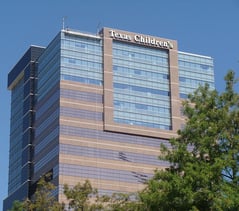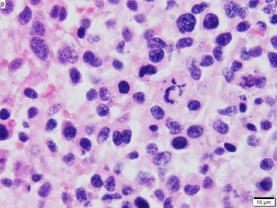
The Jan and Dan Duncan Neurological Research Institute (NRI) at Texas Childrens Hospital in Houston is a leading research institution continuously making breakthroughs in the field of neurological research on topics such as autism, Alzheimer's and epilepsy. Now, thanks to Charif Souki, co-founder of Tellurian, the NRI will have an additional $10 million to further their life science research. (Image courtesy of Zereshk via Wikimedia Commons)
Read More
Tags:
new research funding,
tmc,
BioResearch Product Faire Event,
Houston,
TX,
Neurological Disorder,
Texas Childrens Hospital,
Neurological Research
 The state of Texas is striving to increase cancer research capabilities and opportunities with the Cancer Prevention and Research Institute of Texas (CPRIT). One method that CPRIT uses to increase cancer research opportunities throughout the state is through the institutes core facility support awards, which provide more funding and opportunities for researchers from different Texas institutions. Recently, researchers from Texas A&M University received a $5.7 million grant from CPRIT to expand cancer research at the university through this additional core facility funding. (Image courtesy of Aggie0083 via Wikimedia Commons)
The state of Texas is striving to increase cancer research capabilities and opportunities with the Cancer Prevention and Research Institute of Texas (CPRIT). One method that CPRIT uses to increase cancer research opportunities throughout the state is through the institutes core facility support awards, which provide more funding and opportunities for researchers from different Texas institutions. Recently, researchers from Texas A&M University received a $5.7 million grant from CPRIT to expand cancer research at the university through this additional core facility funding. (Image courtesy of Aggie0083 via Wikimedia Commons)
Read More
Tags:
Texas A&M University,
Texas Medical Center,
Texas,
TAMU,
tmc,
BioResearch Product Faire Event,
Houston,
TX,
cancer research funding,
2018,
Baylor College of Medicine,
core facility funding
 Lymphoma is one of the most common types of cancer, with Non-Hodgkin Lymphoma making up about 4% of all cancer cases in the United States, according to the American Cancer Society. Although treatment methods like chemotherapy and radiation therapy are able to treat the cancer, researchers still actively study this cancer to gain a better understanding of it to develop new targeted treatment methods.
Lymphoma is one of the most common types of cancer, with Non-Hodgkin Lymphoma making up about 4% of all cancer cases in the United States, according to the American Cancer Society. Although treatment methods like chemotherapy and radiation therapy are able to treat the cancer, researchers still actively study this cancer to gain a better understanding of it to develop new targeted treatment methods.
Researchers from the Center for Cell and Gene Therapy at Baylor College of Medicine, Texas Children's Hospital and Houston Methodist Hospital have been studying new therapies for the cancer using T-cells, research that they will continue with the assistance of a new $11.5 million grant from the National Cancer Institute. (Image courtesy of TexasPathologistMSW ia Wikimedia Commons)
Read More
Tags:
new research funding,
cancer research,
Texas Medical Center,
tmc,
Houston,
TX,
NIH funding,
2018,
Lymphoma,
Baylor College of Medicine
Join Biotechnology Calendar, Inc. at the January Texas Medical Center BioResearch Product Faire Event and exhibit at the largest medical complex in the world.
With life science expenditures and NIH funding totaling more than 2.2 billion dollars , the BioResearch Product Faire™ offers an excellent opportunity to meet with well-funded researchers. This is further supported by consistent attendance at these trade shows well in excess of 400 researcher attendees, occasionally breaking 500 researchers in attendance.
Texas Medical Center has a new state of the art medical campus under construction which is estimated for completion in 2019 while the Zayed Building at MD Anderson just opend been opened in 2016. We invite you to join us early next year for Houston’s 18th Annual BioResearch Product Faire™.
Read More
Tags:
cancer research,
Texas Medical Center,
Texas,
tmc,
Houston,
Lab Product Sales,
2018
.jpg?width=273&name=Aerial_of_Texas_Medical_Center_with_Downtown_Houston_in_the_background_(cropped).jpg) Sézary syndrome is a rare form of T-cell lymphoma that causes different types of lesions to appear on the skin once. Very little is known about the cause of this cancer, and there are no current cures available. Researchers from Baylor College of Medicine and the MD Anderson Cancer Center in Houston, Texas have identified certain genes that, when mutated, appear to play a role in Sézary syndrome
Sézary syndrome is a rare form of T-cell lymphoma that causes different types of lesions to appear on the skin once. Very little is known about the cause of this cancer, and there are no current cures available. Researchers from Baylor College of Medicine and the MD Anderson Cancer Center in Houston, Texas have identified certain genes that, when mutated, appear to play a role in Sézary syndrome
Read More
Tags:
cancer research,
Texas Medical Center,
Southwest,
tmc,
BioResearch Product Faire Event,
Houston,
TX,
2016,
Sezary Syndrome
Imagine knowing that you have a disease that could potentially lead to cancer, and having to live in a state of constant uncertainty about whether or not a tumor would develop. For people with Human Papillomavirus (HPV), the most common sexually transmitted disease in the United States, this is a reality. HPV is a serious disease that can lead to cervical cancer (along with other types). Although there is now a vaccines for the disease, there is no known cure for those already afflicted. Life science researchers at The University of Texas Health Science Center (UTHealth) in Houston have recently discovered that an extract from shiitake mushrooms could potentially lead to a cure for HPV.
Read More
Tags:
Texas Medical Center,
Southwest,
2015,
tmc,
BioResearch Product Faire Event,
Houston,
TX,
Shiitake Mushrooms,
HPV,
Active Hexose Correlated Compound,
Mushrooms,
AHCC
Exxon Mobil, the most traded international oil and gas company in the world, donates millions of dollars annually to community organizations that work with the sciences, health and education. The company, which has headquarters in both Irving and Houston, Texas, has a long history of helping out local Texas organizations. Keeping with its commitment to working in Texas, Exxon Mobil recently announced that it will donate $18 million to three research institutions located within the Texas Medical Center in Houston.
Read More
Tags:
Texas Medical Center,
Southwest,
2015,
tmc,
BioResearch Product Faire Event,
Houston,
TX
As the largest state in the continental U.S. and the second most populous state of all 50, it is no wonder that the Lone Star State is known for being BIG. Amongst the big things in Texas are three world-class research institutions: University of Texas Austin, Texas A&M University in College Station, and Texas Medical Center in Houston.
Read More
Tags:
University of Texas,
Texas Medical Center,
Southwest,
UTAust,
2015,
Austin,
College Station,
TAMU,
tmc,
BioResearch Product Faire Event,
Houston,
TX,
Texas A&M
There are thousands of genes in the human genome that all have different purposes. At least 3,000 of these genes are known to express proteins that can be altered by different medications, however, the FDA has only approved drugs that target around 10 percent of these genes. That means that there are still thousands of genes that have not been thoroughly studied that, with the help of the right medication, could be targeted to help improve human health. The National Institutes of Health Common Fund has awarded 8 U.S. institutions $5.8 million for a new collaborative three-year program called Illuminating the Druggable Genome (IDG) that will study different genes and their potential to be modified by different medicines.
Read More
Tags:
CA,
Mount Sinai School of Medicine,
University of California San Francisco,
Texas Medical Center,
New York,
Southwest,
2015,
MSSM,
tmc,
San Francisco,
SFVS,
BioResearch Product Faire Event,
Houston,
NY,
TX,
UC San Francisco,
Biotechnology Vendor Showcase Event,
North East

After undergoing cancer treatments such as chemotherapy, many people experience a lapse in memory, known as chemo brain. Along with memory problems, chemo brain can also include having trouble concentrating, taking more time to finish simple tasks, and having trouble multi-tasking. The cause of chemo brain is currently unknown, but researchers at the University of Texas Health Science Center in Houston (UTHealth) have recently discovered a possible cause of chemo brain. (Image on right courtesy of Wikimedia).
Read More
Tags:
Texas Medical Center,
Southwest,
2015,
tmc,
BioResearch Product Faire Event,
Houston,
TX




 Lymphoma is one of the most common types of cancer, with Non-Hodgkin Lymphoma making up about 4% of all cancer cases in the United States, according to the
Lymphoma is one of the most common types of cancer, with Non-Hodgkin Lymphoma making up about 4% of all cancer cases in the United States, according to the .jpg?width=273&name=Aerial_of_Texas_Medical_Center_with_Downtown_Houston_in_the_background_(cropped).jpg) Sézary syndrome is a rare form of T-cell lymphoma that causes different types of lesions to appear on the skin once. Very little is known about the cause of this cancer, and there are no current cures available. Researchers from
Sézary syndrome is a rare form of T-cell lymphoma that causes different types of lesions to appear on the skin once. Very little is known about the cause of this cancer, and there are no current cures available. Researchers from 